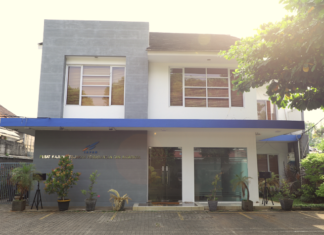Moonshot, an Australian incubator that itself began as a startup, is offering a 3-month accelerator program which includes an investment of up to AU$40k per startup for 4% equity.
This is the company’s fourth accelerator program, which began in 2018 through a partnership with the Startmate accelerator in 2018, where Moonshot invested $300,000 across 4 space startups. The cohort included Swoop Aero, who have since deployed their long-distance drones across nations such as Vanuatu and the Democratic Republic of Congo to move critical medical supplies with the World Health Organisation; and JigSpace who was recently featured as a part of Apple’s latest iPhone unveiling for their augmented reality app,which is being used by several international aerospace, medical and automotive firms.
Since then, Moonshot has raised its own fund and is looking to support 5 space startups, offering a total of AU$200k in investments, who will be mentored in a full-time accelerator program to take place between March-June this year. Because of COVID-19, the program will be semi-remote, but it is hoped that participants will be based in Sydney, for the duration of the mentorship.
Mentors will include Flavia Tata Nardini of Fleet Space, Adam Gilmour of Gilmour Space, Amir Blachman (Chief Business Officer at Axiom Space), and Dr. Andrew Aldrin. Each startup will be paired with one mentor, whom they will meet on a weekly basis, and will receive mentorship from others in addition. Applications are open to any startup working on space-related ideas and technologies, with preference given to founders whose sole focus is their startup, and who have a clear strategy.
Moonshot founder and CEO Troy McCann said, “Most people think that space is someplace far away, detached from our planet. But the International Space Station is only 400 km away – half the distance between Sydney and Melbourne. Space technology is at the core of every industry already, and today, a commercial space business using earth orbit can be launched for a tenth of the cost of an investment property.
“We support startups that use frontier locations because they’re often misunderstood and seen as too risky by everyone else, but that’s often not the case and they can have incredible impacts on our world. These startups are helping us address climate change, grow food in usually inhospitable areas, and even develop new kinds of medicines that can’t be manufactured on Earth because our gravity affects the chemical reactions.
“Just like the most valuable companies today are those that built the infrastructure that the international economy runs on, today’s space tech businesses are creating the infrastructure that the international economy will run on tomorrow. Outer space is the new cyberspace.”







